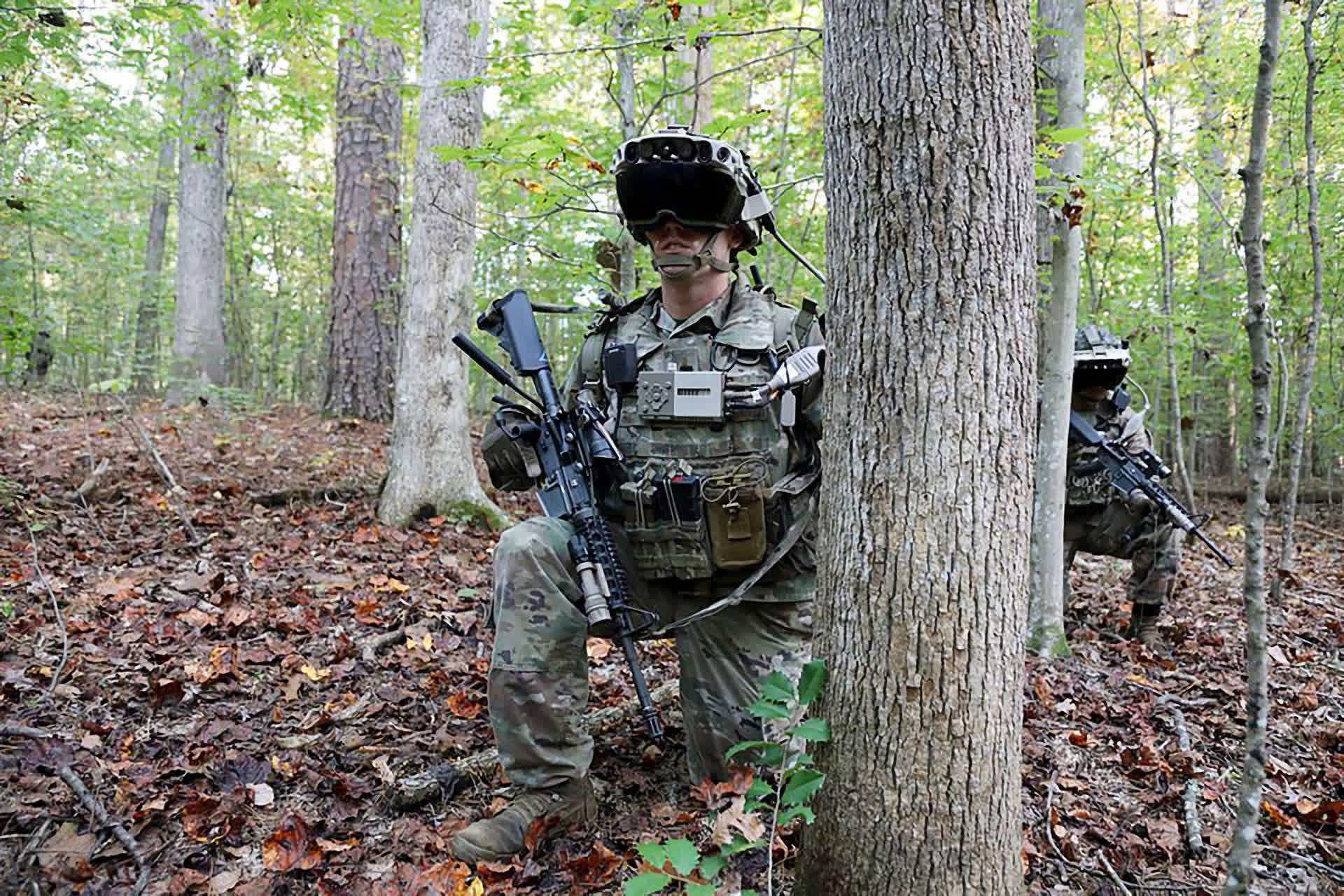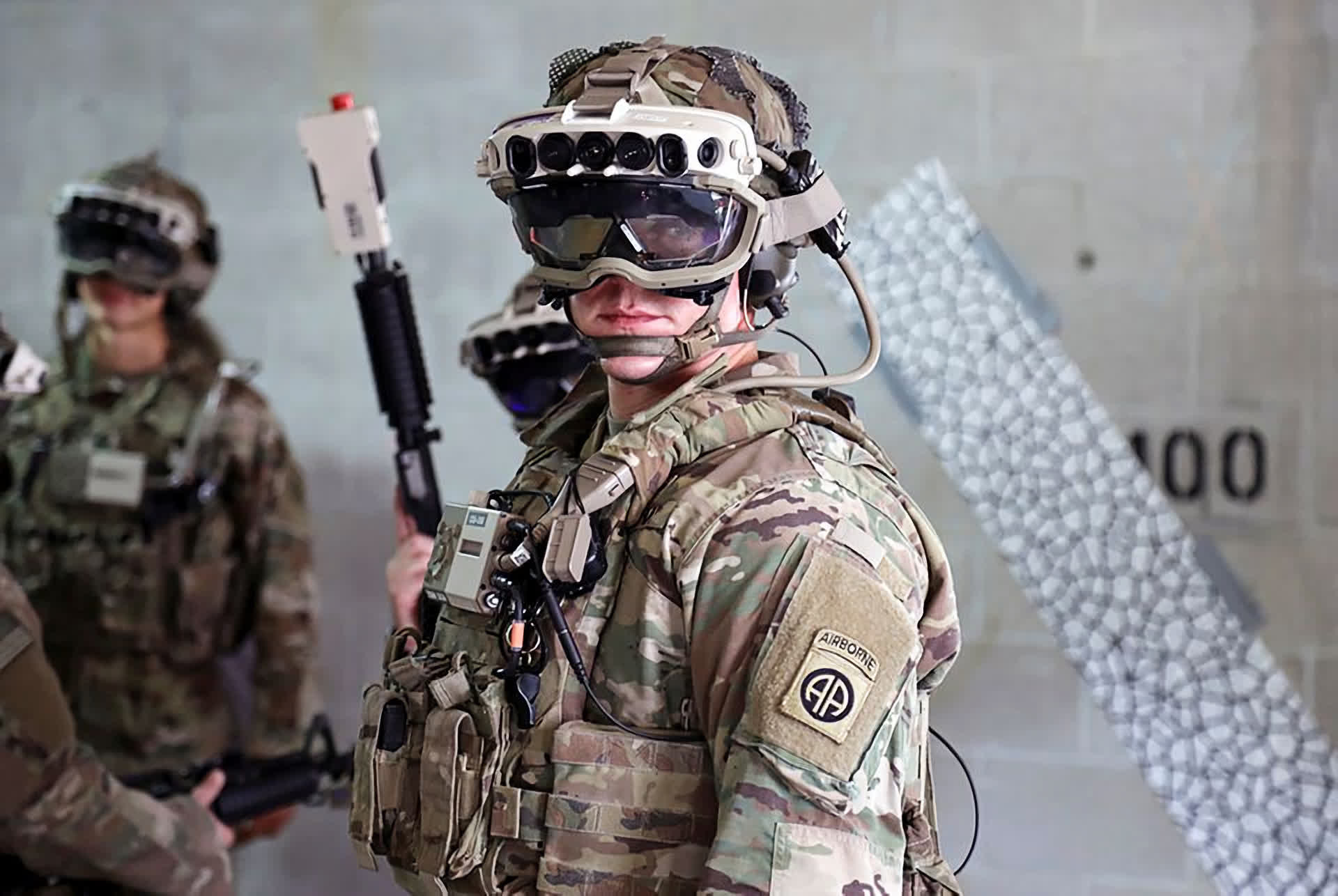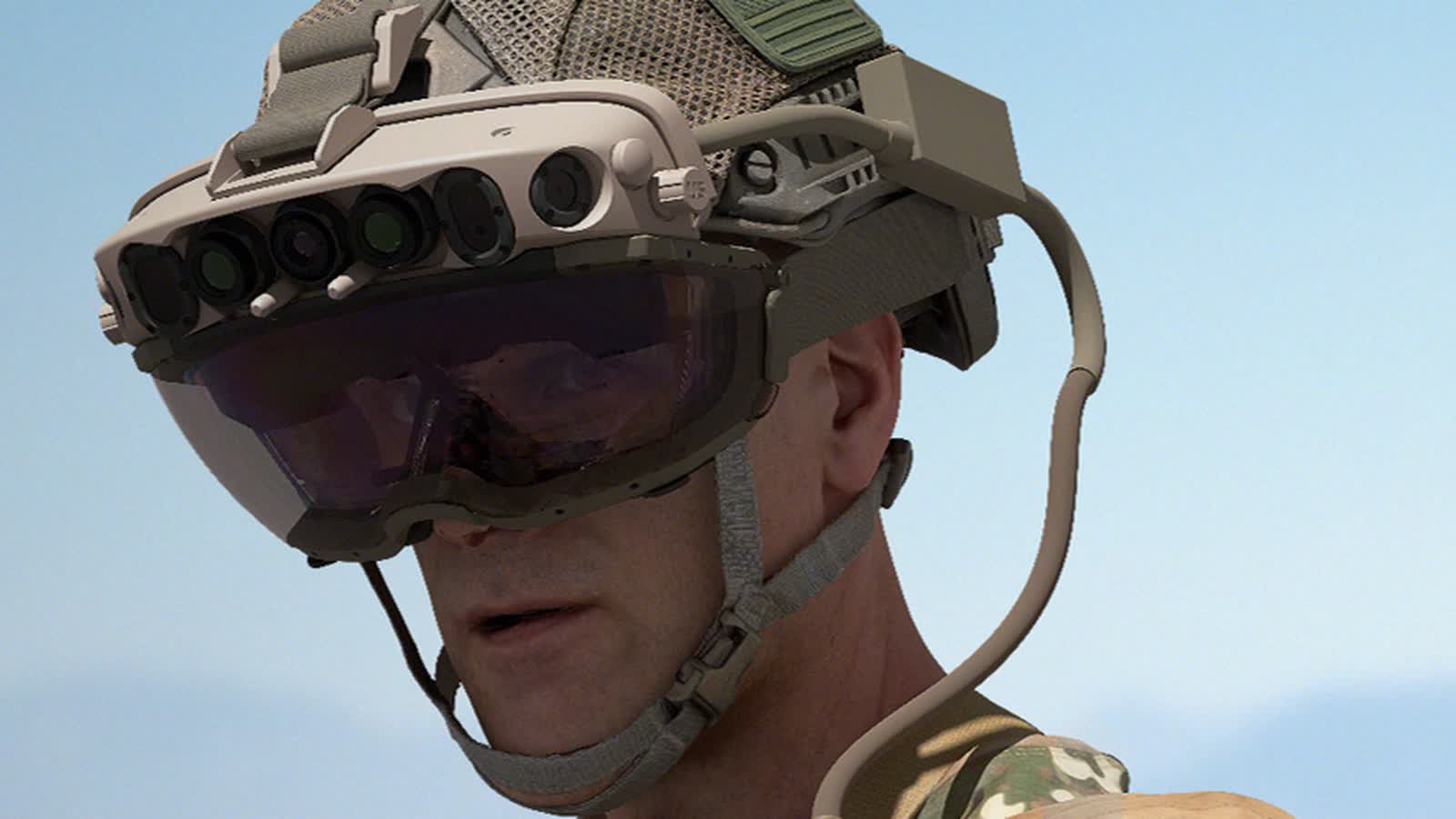A hot potato: The Hololens-based AR goggles Microsoft provides to the US Army as part of a contract worth up to $22 billion have come in for more criticism after a user said they could endanger soldiers. "The devices would have gotten us killed," said the tester.
Microsoft was awarded a $480 million contract to provide the US Army with Integrated Visual Augmentation System (IVAS) headsets in 2018, marking the beginning of a project that has brought much controversy for both entities.
The initial agreement was expanded in March 2021, ensuring Microsoft will provide finalized production versions, parts, and support in an agreement potentially worth up to $21.9 billion across a decade. The Army ordered an initial 5,000 units, valued at $373 million, with around 121,000 to be delivered over the course of the deal.
The first batch of headsets was supposed to be delivered in the fiscal year 2021 but was delayed by a year---the first deliveries only arrived last month. But it seems they're not without some serious issues.
According to excerpts from an Army report dictated to Insider, a tester has warned that the headsets pose a danger to soldiers due to the light they generate while active, which could alert enemy forces to a wearer's location. The glow from the display is said to be visible from hundreds of meters away.

According to a Microsoft employee briefed about the event, the headset failed in four out of six evaluation events during a recent "operational demo."
Other complaints about the headsets include limiting a soldier's field of view, including peripheral vision, when worn. They're also bulky and heavy enough to impede a wearer's movement.
Microsoft is directing all questions about IVAS to the Army. The military branch says it remains committed to the program and that the operational test so far has generally been considered a success. It did note, however, that the results have shown areas where IVAS has fallen short and needs additional improvements.

The report marks another bump in the road for the long-term IVAS project. Microsoft's original deal resulted in an open letter of objection from employees, forcing CEO Satya Nadella to respond. In April, a Department of Defense oversight agency warned that the massive amount the Army was spending on the goggles could be a waste of taxpayer money as many soldiers weren't fans of IVAS.
Microsoft is said to have expected pushback against the goggles from the beginning. As for the Army, it keeps pointing to the introduction of night vision goggles in the 1970s that received similar criticisms but are now widely used.
